Lawmakers Warn Biden Against Deal With Iran Before Consulting Congress
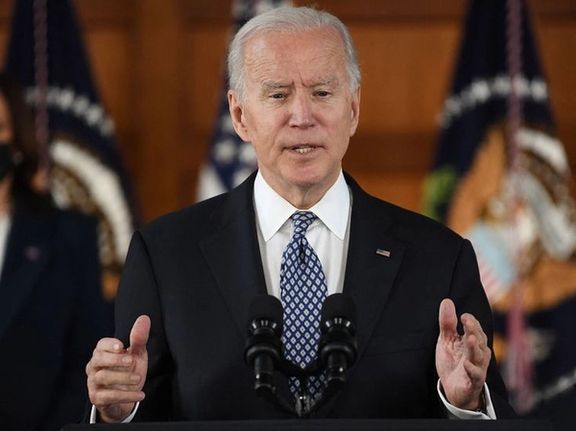
A bipartisan group of 50 US lawmakers have sounded the alarm on a looming agreement over Iran’s nuclear deal, urging the administration to immediately consult with Congress.

A bipartisan group of 50 US lawmakers have sounded the alarm on a looming agreement over Iran’s nuclear deal, urging the administration to immediately consult with Congress.
The group, comprised of 34 Democrats and 16 Republicans led by Congressman Josh Gottheimer (D-NJ) and Andrew Garbarino (R-NY), wrote to President Joe Biden on Thursday to express deep concern about reported provisions in the potential agreement with the Islamic Republic that they described as “the world’s leading state sponsor of terrorism.” “If the regime in Iran has proven anything, it's that it can’t be trusted,” they said.
Their concerns include weakening the effectiveness of terrorism-related sanctions on Iran’s Revolutionary Guard (IRGC) and allowing Russia to have a role in nuclear projects with Iran — including a $10-billion contract to build atomic reactors.
“The IRGC has directly, or through its proxies, including Hezbollah, Hamas, Ansar Allah (Houthis), Palestinian Islamic Jihad (PIJ), and scores of Shiite militias in Iraq, killed hundreds of Americans, and attacked our bases and our allies in the region,” they said, noting that an estimated one trillion dollars in sanctions relief over a decade would strengthen Iran and the IRGC as an enormous danger to Americans at home and abroad.
They also criticized the deal for enabling Russia to be “the de facto judge of compliance and the keeper of Iran’s enriched uranium, without any oversight mechanisms by the United States or our European partners.”
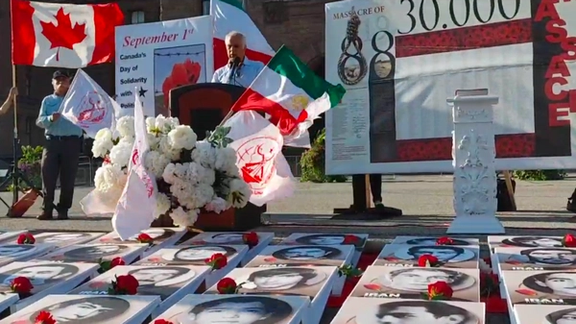
Dozens of Iranian-Canadians held a gathering to mark September 1, the day of solidarity with Iranian political prisoners as per a resolution by the Canadian Parliament.
Many Iranian-Canadians whose family members were killed in a wave of prison executions in 1988, gathered on Wednesday at Queen's Park in Downtown Toronto, Ontario. In 2013, the Canadian parliament condemned the killing of about 5,000 dissidents, and proclaimed September 1 as Solidarity with Political Prisoners in Iran Day in remembrance of the victims.
The participants called on the international community to hold the Islamic Republic accountable for its crimes against humanity as well as its crackdown on dissent.
Demanding justice for the victims of the 1988 mass executions and an end to impunity for Iranian leaders, including President Ebrahim Raisi, they echoed calls by several US politicians that have urged President Joe Biden to deny a visa to the Iranian president, who plans to travel to the UN in New York in September. Raisi is accused of being a member of a death commission that ordered the summary executions.
Raisi’s election as president last June sparked interest in his role in the executions. Agnes Callamard, the secretary general of Amnesty International, immediately demanded that the United Nations Human Rights Council investigate him for crimes against humanity.
Most of the approximately 5,000 prisoners executed in 1988 were members or sympathizers of the Albania-based exiled opposition group Mujahedin-e Khalq (MEK) serving their sentences, with a lower number of executions of leftists. The MEK has claimed 30,000 members died, and in 2019 launched a booklet Crimes Against Humanity naming 5,000.
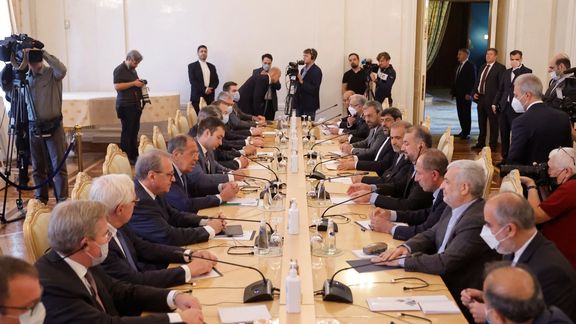
Moscow and Tehran are working on a 20-year strategic cooperation deal, foreign minister Sergei Lavrov said during a press conference with his Iranian counterpart.
Tehran’s top diplomat, Hossein Amir-Abdollahian, met Lavrov in Moscow on Wednesday and discussed an array of foreign policy issues, but also more economic cooperation, as both are under international banking and energy sanctions.
Iran is currently negotiating with the West to resolve disputes around its nuclear program and emerge form crippling US sanctions, leading to concerns that Russia might use Iran to circumvent some international sanctions.
Despite a lot of rhetoric about close relations, bilateral trade between the two countries is quite small, only recently reaching $4 billion. The reason for this is that Russia until its invasion of Ukraine had a trade oriented toward the West and China, rather than Iran. Russian consumers could afford Western goods and China, Vietnam and others filled the void for cheaper merchandise.
But that can somewhat change. Lavrov mentioned plans to launch a free trade zone with Iran and the two allies have been holding talks with Azerbaijan to have a trade corridor from north to south. Still, Russia can benefit more from trade with Turkey since the latter has not joined Western sanctions.
Another project is for Iran to join Russia’s Mir payment system, launched in 2017 after the first Western sanctions following Moscow’s occupation of Crimea in 2014. The central bank launched the National Card Payment System after 2014, which issued the Mir payment system later. Both Russia and Iran are cut off from Mastercard and Visa, and Iran is completely banned from the Western banking communication system SWIFT, while also some Russian banks were disconnected from the fast money transfer service in March.
The Mir system itself is now contained, by around 100 million cardholders only having access to their Russian bank accounts and unable to do transactions with ecommerce websites elsewhere, except a few former Soviet Republics that are also members of the payment system.
But if Iran reaches a nuclear deal and US sanctions are lifted, its banking ties with other countries might gradually improve. In that case, Russians can use the Mir system to conduct international transactions via Iran.
Hadi Tizhush Taban, chairman of Russia Iran chamber of commerce in Tehran told a local website on Wednesday that Iran had only 0.5 percent of Russia’s international trade share before the invasion of Ukraine. He urged the development of trade infrastructure between the two counties, which itself might take a long time.
Taban expressed optimism that if a new nuclear deal is reached and sanctions lifted, Iran can have more non-oil exports to Russia.
But the biggest bonanza for Moscow would be its $10 billion deal with Tehran to expands nuclear power in Iran. The United States has reportedly agreed to allow Russia to continue with this project, which many think will be an opportunity for Moscow to circumvent Western sanctions.
Iran also has plans to import natural gas from Russia ostensibly as “swap” deal, but none of Iran’s neighbors except Turkey are Russian gas customers. In reality, Iran wants to use Russian gas to compensate for its domestic shortage and use the supply to sell more gas to Iraq and perhaps Pakistan as a new customer.
Despite all the talk about vastly expanding economic ties, Russia and Iran remain rivals in the oil market and their cooperation is more significant in political and military spheres.
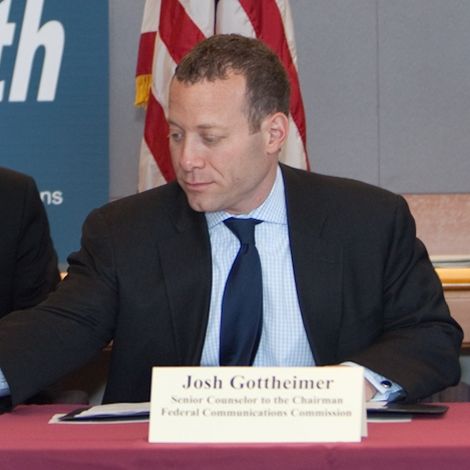
More than 40 US lawmakers, including about 30 Democrats, in the House of Representatives have signed onto a draft letter expressing fresh concerns about the renewed Iran nuclear deal.
According to the Jewish Insider on Wednesday, the letter, spearheaded by Rep. Josh Gottheimer (D-NJ), is addressed to President Joe Biden and began circulating on Sunday and will close for signatures on Wednesday.
The letter urged the administration not to sign any deal before releasing the complete agreement to Congress, briefing lawmakers and seeking input from other stakeholders.
The letter voices specific objections to reported provisions modifying US sanctions targeting the Islamic Revolutionary Guard Corps and lifting sanctions on Iran’s central bank, national development fund and national oil company.
The lawmakers express concerns about specific alleged provisions of the proposed agreement text that have been publicly reported, arguing that, given recent Iranian attempts to attack American citizens on US soil, any reduction or loosening of sanctions would be inappropriate.
The Representatives further contend that Russia should not be trusted to serve as the repository of Iran’s enriched uranium, nor be allowed to engage in any nuclear projects with Iran — including a $10-billion contract to build atomic reactors for which the administration has reportedly agreed to waive sanctions.
On Tuesday, a former IAEA official told Iran International that Tehran and Washington have agreed to restore the 2015 nuclear accord and will announce terms in two to three weeks.

Iran’s prosecutor-general Mohammad-Jafar Montazeri says since Tehran and Washington have no treaty on the expatriation of prisoners, such exchanges should be done through diplomatic channels.
In response to a question about earlier remarks by the country’s foreign ministry spokesman, who had expressed Iran’s readiness for prisoner swaps as part of the agreement to revive the 2015 nuclear deal, he did not rule out such a possibility.
“We have a duty to follow up on the problems of our citizens anywhere in the world and support them, but relations between countries can be very effective in this field. The level of relationships and the quality of relationships are effective in this field,” he said.
He noted that such exchanges work much more easily with Islamic countries and neighboring countries, especially with countries with whom Tehran has agreements in this regard, but “these relations and contracts do not exist with a country like the United States, and things must be done diplomatically.”
Earlier in the month, foreign ministry spokesman Nasser Kanaani said Iran is ready for swift agreements for prisoner swaps with the US, regardless of the result of talks to restore the JCPOA.
A few days earlier, the spokesman for the Iranian parliament's National Security and Foreign Relations Committee Mahmoud Abbaszadeh Meshkini said, "I don't know specifically whether there is going to be an exchange of prisoners between Iran and the United States, but in international relations this is customary and it is not unusual for some prisoners to be exchanged between the two countries.”
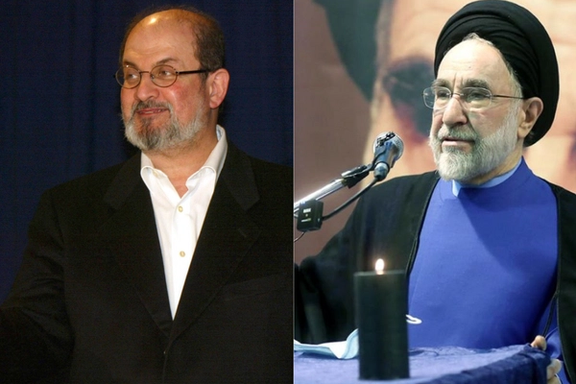
A new report has revealed that Iran’s former President Mohammad Khatami had a role in issuing the fatwa by Islamic Republic’s founder Rouhollah Khomeini against author Salman Rushdie.
According to a report by BBC, Khatami – then a minister -- held a meeting with two Pakistani-British Islamic scholars, Kalim Siddiqui and Ghayasuddin Siddiqui, just hours before Khomeini issued the fatwa, a formal proclamation that called for the murder of Rushdie. Before the February 1989 decree, Iran had largely ignored the Satanic Verses, the controversial book that brought about 30 years of death threats for the novelist.
The two Sunni clerics had arrived at Tehran’s Mehrabad Airport to get home to the UK after attending a conference in the Iranian capital to mark a decade since the country's Islamic Revolution. Inside the airport, they bumped into Khatami -- who asked to have a private word with Kalim. "They went to a corner and chatted," Ghayasuddin later explained in the BBC's 2009 documentary, recounting that "He (Khatami) was asking my view about Salman Rushdie - and I told him, 'You know, something drastic has to happen.'"
Khatami then met with Khomeini, and a few hours later the fatwa was issued, not only against Rushdie but also its publishers, editors and translators, reportedly without Khomeini even reading the novel. "I call on all valiant Muslims wherever they may be in the world to kill them without delay" it read.
Kalim later said he believed he may have been "partially responsible" for the fatwa. In 2019, Ed Husain, a writer on religion and extremism, said that Khomeini had not been minded to do anything about Rushdie; it had been the British imam who had urged the autocratic political and religious leader that he "must do something for the Muslims".